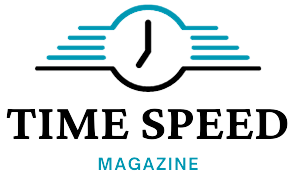As technology continues to dominate our world, the significance of computer science cannot be overstated. However, for some individuals, the journey through the realm of algorithms and code can be a challenging and disheartening experience. In this article, we will delve into the reasons behind the sentiment of “I hate computer science” and explore ways to overcome these frustrations.
Personal Experiences Fueling the Dislike
Many students find themselves grappling with the complexities of computer science. Whether it’s deciphering intricate algorithms or understanding the jargon-filled terminology, the struggle is real. The initial excitement of entering the world of programming can quickly turn into frustration, leading to a disdain for the subject.
Common Challenges Faced by Students
Students often encounter common challenges that contribute to their negative feelings toward computer science. These challenges include overwhelming workloads, tight deadlines, and the pressure to grasp abstract concepts.
Exploring the Reasons
Complex Concepts and Terminology
One of the primary reasons individuals develop a dislike for computer science is the presence of complex concepts and terminology. From intricate data structures to convoluted algorithms, the subject matter can be overwhelming.
Lack of Practical Application
Another factor that contributes to the negative sentiment is the perceived lack of practical application. Students may find it challenging to see how the theoretical knowledge gained in the classroom translates into real-world scenarios.
Overwhelming Workload
The demanding nature of computer science courses often results in an overwhelming workload. Balancing assignments, projects, and exams can lead to burnout and a growing aversion to the subject.
Coping Strategies
Seeking Support from Peers and Mentors
For those struggling with computer science, seeking support from peers and mentors can make a significant difference. Collaborative learning environments and mentorship programs provide valuable insights and help alleviate the isolation often associated with the subject.
Breaking Down Concepts Step by Step
To tackle the complexity of computer science, breaking down concepts into manageable steps is essential. Taking a step-by-step approach allows students to grasp each element before moving on to the next, reducing feelings of confusion and frustration.
Finding Real-Life Applications
Connecting theoretical concepts to real-life applications can transform the learning experience. Understanding how algorithms are applied in various industries and technologies can make computer science more engaging and relevant.
Overcoming the Hate
Changing Perspective on Learning
Adopting a positive perspective on learning can shift the narrative from hatred to curiosity. Embracing the challenges as opportunities for growth and learning can change the overall perception of computer science.
Discovering the Fascinating Side of Computer Science
Delving into the fascinating aspects of computer science, such as artificial intelligence, cybersecurity, and data science, can reignite interest and passion. Discovering the diverse and dynamic nature of the field can make the learning journey more enjoyable.
Connecting Theory with Real-World Examples
Bridging the gap between theory and real-world examples is crucial for a holistic understanding of computer science. Integrating practical applications into the curriculum can enhance comprehension and highlight the relevance of the subject.
The Future of Computer Science
Evolving Field and Career Opportunities
Despite the initial challenges, computer science is an ever-evolving field with numerous career opportunities. Embracing the continuous advancements in technology opens doors to exciting possibilities, motivating individuals to persevere through difficulties.
Adapting to a Changing Technological Landscape
As technology continues to evolve, so does the field of computer science. Adapting to the changing technological landscape is essential for staying relevant in the industry. Continuous learning and adaptation ensure that individuals not only overcome their initial dislike but also thrive in the dynamic world of technology.
Why the Hate
Overwhelming Nature of Programming
The first encounter with programming languages felt like deciphering an alien language. The syntax, the logic—it was all too much. The initial excitement of creating something from scratch turned into frustration.
Frustrations with Debugging
Debugging, the necessary evil of programming, became my nemesis. Spending hours searching for a misplaced semicolon felt like a futile exercise, leading to immense frustration.
Theoretical Concepts Causing Confusion
Theoretical concepts in Computer Science seemed to exist in a realm far removed from practical applications. It felt like learning a foreign language without ever stepping foot in the country.
The Journey
Initial Interest Turning into Frustration
My foray into Computer Science began with a genuine interest. However, as the complexities unfolded, interest turned into frustration, leaving me questioning my choices.
Failed Attempts at Embracing Computer Science
Despite several attempts to embrace Computer Science, the gap between passion and comprehension widened. It was a journey filled with failed attempts and a growing distaste for the subject.
Coping Mechanisms
Exploring Alternative Fields
To cope with my dislike for Computer Science, I began exploring alternative fields within the tech industry. Surprisingly, numerous paths didn’t involve hardcore programming.
Seeking Support from Peers
Connecting with peers who shared similar sentiments provided a support system. It was comforting to know that I wasn’t alone in my struggles.
Balancing Strengths and Weaknesses
Acknowledging my strengths outside of Computer Science helped in find a balance. It became clear that success wasn’t confined to a single field.
The Industry Realities
High Demand for Computer Scientists
The constant pressure to conform to the industry’s demand for computer scientists intensified the dislike. Societal expectations clashed with personal preferences.
Alternative Roles Within the Tech Industry
Discovering alternative roles within the tech industry opened up new possibilities. It highlighted that success in the tech world wasn’t solely dependent on coding skills.
Personal Growth
Acknowledging Strengths Outside Computer Science
Accepting that success could be achieved outside the realm of Computer Science was a pivotal moment. It led to personal growth and a broader perspective on career paths.
Finding Passion in Related Fields
Exploring related fields allowed me to discover a passion for areas that complemented my skills and interests.
Developing a Well-Rounded Skill Set
Rather than focusing solely on programming, I diversified my skill set. This approach not only enhanced my capabilities but also opened doors to diverse opportunities.
Breaking Stereotypes
Dispelling Myths About Success in Tech
Challenging the prevailing myths about success in tech became a mission. It was essential to showcase that thriving in the industry didn’t necessitate a love for programming.
Celebrating Diverse Paths to Achievement
Highlighting success stories of individuals who followed unconventional paths in tech was crucial. It aimed to celebrate diversity and redefine the narrative around achievement.
Overcoming Challenges
Developing a Growth Mindset
A shift in mindset from fixed to growth-oriented was essential. Embracing challenges as opportunities for learning became a mantra.
Learning from Failures
Failures were not roadblocks but stepping stones. Each setback provided valuable lessons and contributed to personal and professional growth.
Building Resilience in the Face of Difficulties
Resilience became a key attribute in navigating the challenges of the tech industry. It involved bouncing back from setbacks with newfound determination.
The Role of Education
Adapting Educational Approaches
The traditional approach to Computer Science education might not suit everyone. Adapting teaching methods to cater to diverse learning styles can make the subject more accessible.
Encouraging Interdisciplinary Learning
Encouraging interdisciplinary learning helps individuals see the broader applications of Computer Science. It fosters a holistic understanding of the subject.
Tailoring Learning Experiences to Individual Needs
Recognizing that one size doesn’t fit all, tailoring learning experiences to individual needs ensures a more inclusive and engaging education.
Community Support
Joining Communities with Similar Sentiments
Connecting with communities of individuals who share a dislike for Computer Science provides a sense of belonging. It creates a space for shared experiences and mutual support.
Sharing Experiences and Insights
Sharing personal experiences and insights within the community helps others navigate similar challenges. It fosters a collaborative environment.
Finding Solace in a Like-Minded Network
In a community of like-minded individuals, finding solace and understanding becomes invaluable. It transforms the journey from solitary frustration to a shared experience.
Reevaluating Perspectives
Recognizing the Evolving Nature of Technology
Understanding that technology is dynamic and ever-evolving is crucial. It opens up the possibility of embracing change rather than resisting it.
Embracing the Dynamic Aspects of the Field
Embracing the dynamic nature of the tech industry allows for continuous learning and adaptation. It transforms the perception of stagnation into a journey of evolution.
Shifting Attitudes Towards Computer Science
Reevaluating attitudes towards Computer Science involves acknowledging the evolving relationship with the subject. It’s about finding a balance between discomfort and acceptance.
Success Stories Outside Computer Science
Profiles of Individuals Thriving in Non-CS Careers
Exploring success stories of individuals thriving in non-computer Science careers highlights the diversity of paths to success.
Emphasizing Diverse Pathways to Success
The emphasis should shift from a singular path to success to diverse pathways. It encourages individuals to forge their unique journeys.
The Future Outlook
Evolving Perceptions of Success in Tech
As perceptions of success in tech evolve, the industry is gradually recognizing the value of diverse skills and perspectives. It signals a positive shift in the narrative.
The Importance of Pursuing Passion Over Societal Expectations
The future outlook emphasizes the importance of pursuing passion over conforming to societal expectations. It’s about finding fulfillment in one’s chosen path, irrespective of conventional norms.
Conclusion
In conclusion, “I hate computer science” is a sentiment many students experience, but it’s crucial to recognize that challenges are an inherent part of the learning process. By understanding the reasons behind the dislike and implementing coping strategies, individuals can overcome their frustrations and discover the fascinating aspects of computer science. Visit Our Website Time Speed Magazine.
FAQs
Is it normal to dislike computer science initially?
Absolutely. Many students find computer science challenging at first, but with perseverance, it often becomes more manageable and even enjoyable.
How can I overcome the overwhelming workload in computer science?
Prioritize tasks, break them into smaller steps, and seek support from peers or mentors.
Are there practical applications for computer science in everyday life?
Yes, computer science is everywhere, from the apps on your phone to the algorithms powering online recommendations.
What are some exciting career opportunities in computer science?
Careers in artificial intelligence, cybersecurity, and data science are thriving and offer exciting prospects.
How can I stay updated in the rapidly changing field of computer science?
Engage in continuous learning through online courses, workshops, and industry events.


